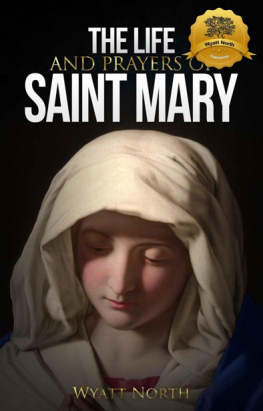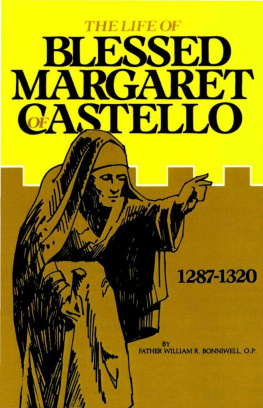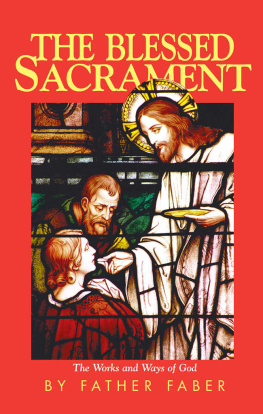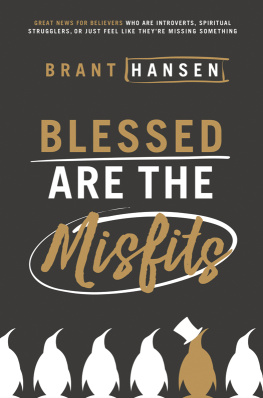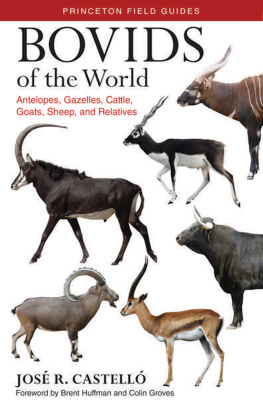Rev. Fr. William R. Bonniwell - The Life of Blessed Margaret of Castello
Here you can read online Rev. Fr. William R. Bonniwell - The Life of Blessed Margaret of Castello full text of the book (entire story) in english for free. Download pdf and epub, get meaning, cover and reviews about this ebook. year: 2015, publisher: TAN Books, genre: Science. Description of the work, (preface) as well as reviews are available. Best literature library LitArk.com created for fans of good reading and offers a wide selection of genres:
Romance novel
Science fiction
Adventure
Detective
Science
History
Home and family
Prose
Art
Politics
Computer
Non-fiction
Religion
Business
Children
Humor
Choose a favorite category and find really read worthwhile books. Enjoy immersion in the world of imagination, feel the emotions of the characters or learn something new for yourself, make an fascinating discovery.

- Book:The Life of Blessed Margaret of Castello
- Author:
- Publisher:TAN Books
- Genre:
- Year:2015
- Rating:3 / 5
- Favourites:Add to favourites
- Your mark:
- 60
- 1
- 2
- 3
- 4
- 5
The Life of Blessed Margaret of Castello: summary, description and annotation
We offer to read an annotation, description, summary or preface (depends on what the author of the book "The Life of Blessed Margaret of Castello" wrote himself). If you haven't found the necessary information about the book — write in the comments, we will try to find it.
The Life of Blessed Margaret of Castello — read online for free the complete book (whole text) full work
Below is the text of the book, divided by pages. System saving the place of the last page read, allows you to conveniently read the book "The Life of Blessed Margaret of Castello" online for free, without having to search again every time where you left off. Put a bookmark, and you can go to the page where you finished reading at any time.
Font size:
Interval:
Bookmark:
The Life of
Blessed Margaret
of
Castello
1287-1320
Father William R. Bonniwell, O.P.
Nihil Obstat: Thomas T. Shea, O.P.
Bruce A. Williams, O.P.
Imprimi Potest: Terence Quinn, O.P., Prior Provincial
St. Joseph Province
New York, New York
Nihil Obstat: Thomas G. Doran
Censor Deputatus
Imprimatur  Arthur J. O'Neil
Arthur J. O'Neil
Bishop of Rockford
February 22, 1979
The Nihil Obstat and Imprimatur are official declarations that a book or pamphlet is free of doctrinal or moral error. No implication is contained therein that those who have granted the Nihil Obstat and Imprimatur agree with the contents, opinions or statements expressed.
Originally published in 1952 as The Story of Margaret of Metola by P. J. Kenedy & Sons, New York, New York. Published (revised) as The Life of Margaret of Castello in 1955 in Ireland by Clonmore & Reynolds Ltd., Dublin, and in England by Burns Oates and Washbourne Ltd., London. Second edition (revised) published as The Life of Blessed Margaret of Castello by IDEA, Inc. in 1979. Third edition (revised again) co-published in 1983 by TAN Books, and IDEA, Inc., P.O. Box 4010, Madison, Wisconsin 53711 (also P.O. Box 119, Elmwood Park, Illinois 60635).
Copyright 1952 by P. J. Kenedy & Sons, New York.
Copyright 1979 by IDEA, Inc.
Library of Congress Catalog Card No.: 83-70524
Cover drawing by Richard Lewis, Rockford, Illinois, based on the statue of Blessed Margaret in the Blessed Margaret Shrine at the Church of St. Louis Bertrand, Louisville, Kentucky. Statue by Tony Moroder, Moroder International, Milwaukee, Wisconsin.
All rights reserved. No part of this book may be reproduced or transmitted in any form or by any means, electronic or mechanical, including photocopying, recording, or by any information storage or retrieval system, without permission in writing from IDEA, Inc.
TAN Books
Charlotte, North Carolina
www.TANBooks.com
2014
TABLE OF CONTENTS

Blessed Margaret of Castello, beatified on October 19, 1609. Her feast day is April 13th. The statue is in Blessed Margaret's shrine at the Church of St. Louis Bertrand in Louisville, Kentucky.
PREFACE
This third edition in thirty-one years of Father William R. Bonniwell's Life of Blessed Margaret of Castello, the second since 1979, is something of a phenomenon.
It is not unusual that the passage of more than a quarter-century sees many changes in the life of the Church in the modern world. But in some sectors of the Church's life, the events following (but not necessarily resulting from) the Second Vatican Council swept in on winds of violence that not only brought some "fresh air" into its rooms, but threatened at times almost to push the Church away from its foundation and crush it! Not everything "blowin' in the wind" in post-Vatican II days is the Holy Spirit, we know, and not every "prophet" in fact is one.
One aspect of the life of the Church that apparently has suffered to some degree is its traditional devotion to the saints. This age has taken countless secular heroes and heroines to its heart, and for the most part, has been disappointed. It has taken up cause after cause in sincere attempts to better the world and the lives of those who inhabit it, but all too often this was done misguidedly, within the parameters of some merely secular "salvation" divorced from the Cross and the power of Him who hangs upon and has overcome it.
No wonder then, that far from being bettered by attempts to save itself by itself, society seems on the contrary to have disintegrated a bit more "in the widening gyre," and appears as well to have become a victim of its own increasingly morbid fascination with self. And from that quarter salvation can never come.
The great masters of the life of the Spirit have known and written for ages that one of the first consequences of the loss of personal focus on God and the things of God is the failure to praywhether the prayer of praise, of thanksgiving, of petition or of intercession. As one's faith weakens and diminishes, one's vision of God in prayer becomes blurred, and the simple, daily converse with Him falls by the way. Inevitably, then, other interests push in to fill the void, and the darker side of human nature comes to the fore in a rush of materialism. "The best lack all conviction, while the worst are filled with passionate intensity; the blood-dimmed tide is loosed, and everywhere the ceremony of innocence is drowned."
So it is now. Every decade in this century has seen the increasing (and increasingly blatant) disregard for all human rights, and especially for the most basic right, the right to life itself.
Aided and abetted by courts and legislatures, and followed by some political and religious "leaders," the social planners and multimillion dollar foundation grants have elevated abortion to the position of a "private right," sterilization (voluntary or not) to the status of a "social benefit," infanticide to the level of pediatric "care," and direct or indirect euthanasia to the place of a "dignity!"
In such times and circumstances, the story of little Margaret of Metola (or Castello) strikes one as being quaint at bestor at worst, hopelessly irrelevant. It is neither, as Father Bonniwell's extensive first-hand research in Italy and the constantand growingdevotion to Blessed Margaret down through the years prove.
Margaret and her story could not possibly be more relevant to these times.
Her parents considered her an embarrassment, and brutally rejected her as "inconvenient," just as tens of millions of parents throughout the world each year reject the children they have conceived as a burden, as "unwanted," and abort them, abandon them, or abuse them to the point of death.
She was shunted aside or regarded as a pious curiosity by the worldly-wise of her day, just as today our society is frightened or made uneasy by physical deformity, and looks for ways of "dealing with" the elderly and infirm that are hardly compassionate or wise.
She was poor, but her "poverty of means" was overcome by the magnanimity and generosity of other poor before it was relieved by the powerful and wealthy.
She was deformed by nature, but only so nature's God could more readily use her as a lesson on what things are (and are not) necessary for "the good life," for a "quality of life"a life received from God, and so shared with Him, first of all, and then with each other.
While reading her story, one is struck by the impression that Margaret is the only "whole" person in it, that those who may be far from the wisdom of the Cross and redemption are really the halt, the lame and the blind!
So it was that eight years ago, while I was giving some theological lectures to the cloistered Dominican Nuns at the Monastery of the Rosary in Summit, New Jersey, they suggested, apropos of my involvement since 1967 in the pro-life movement, that Blessed Margaret of Castello would make an ideal "Patroness of the Unwanted."
I had read an earlier edition of Father Bonniwell's book as a seminarian years before, but until the sisters suggested her importance to our times, the idea had not occurred to me.
Simultaneously, Mrs. Randy Engel, a pro-life colleague and Chairman of the U. S. Coalition for Life, was discussing with me the need for a firmer spiritual base in the lives of pro-life workers and for the movement. It was then that I told her about Margaret of Castello. She was enthusiastic, and immediately began to read, write and speak about Margaret at every opportunity.
Next pageFont size:
Interval:
Bookmark:
Similar books «The Life of Blessed Margaret of Castello»
Look at similar books to The Life of Blessed Margaret of Castello. We have selected literature similar in name and meaning in the hope of providing readers with more options to find new, interesting, not yet read works.
Discussion, reviews of the book The Life of Blessed Margaret of Castello and just readers' own opinions. Leave your comments, write what you think about the work, its meaning or the main characters. Specify what exactly you liked and what you didn't like, and why you think so.




